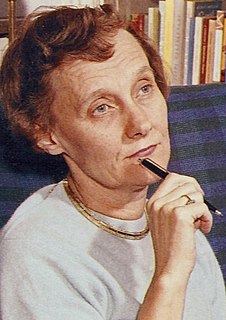Top 24 Quotes & Sayings by Astrid Lindgren
Explore popular quotes and sayings by a Swedish author Astrid Lindgren.
Last updated on April 14, 2025.
The girl hurried away, but then Pippi shouted, "Did he have big ears that reached way down to his shoulders?" "No," said the girl and turned and came running back in amazement. "You don't mean to say that you have seen a man walk by with such big ears?" "I have never seen anyone who walks with his ears," said Pippi. "All the people I know walk with their feet.
As the children were sitting there eating pears, a girl came walking along the road from town. When she saw the children she stopped and asked, "Have you seen my papa go by?" "M-m-m," said Pippi. "How did he look? Did he have blue eyes?" "Yes," said the girl. "Medium large, not too tall and not too short?" "Yes," said the girl. "Black hat and black shoes?" "Yes, exactly," said the girl eagerly. "No, that one we haven't seen," said Pippi decidedly.
Well, well, so you aren't going to be a maidservant this time?" said Pippi, stroking his back. "Oh, that was a lie, that's true," she continued. "But still, if it's true, how can it be a lie?" she argued. "You wait and see, it's going to turn out he was a maidservant in Arabie after all, and if that's the case, I know who's making the meatballs at our house hereafter!
At least, not in this country,' she added after a moment's thought. 'In China it's a little different. Once I saw a Chinaman in Shanghai. His ears were so big he could use them for a raincoat. When it rained, he just crept in under his ears and was warm and snug as could be. Not that the ears had such a rattling good time of it, you understand. If it was specially bad weather, he'd invite friends and acquaintances to pitch camp under his ears too. There they sat, singing their sorrowful songs while it poured down outside.



















